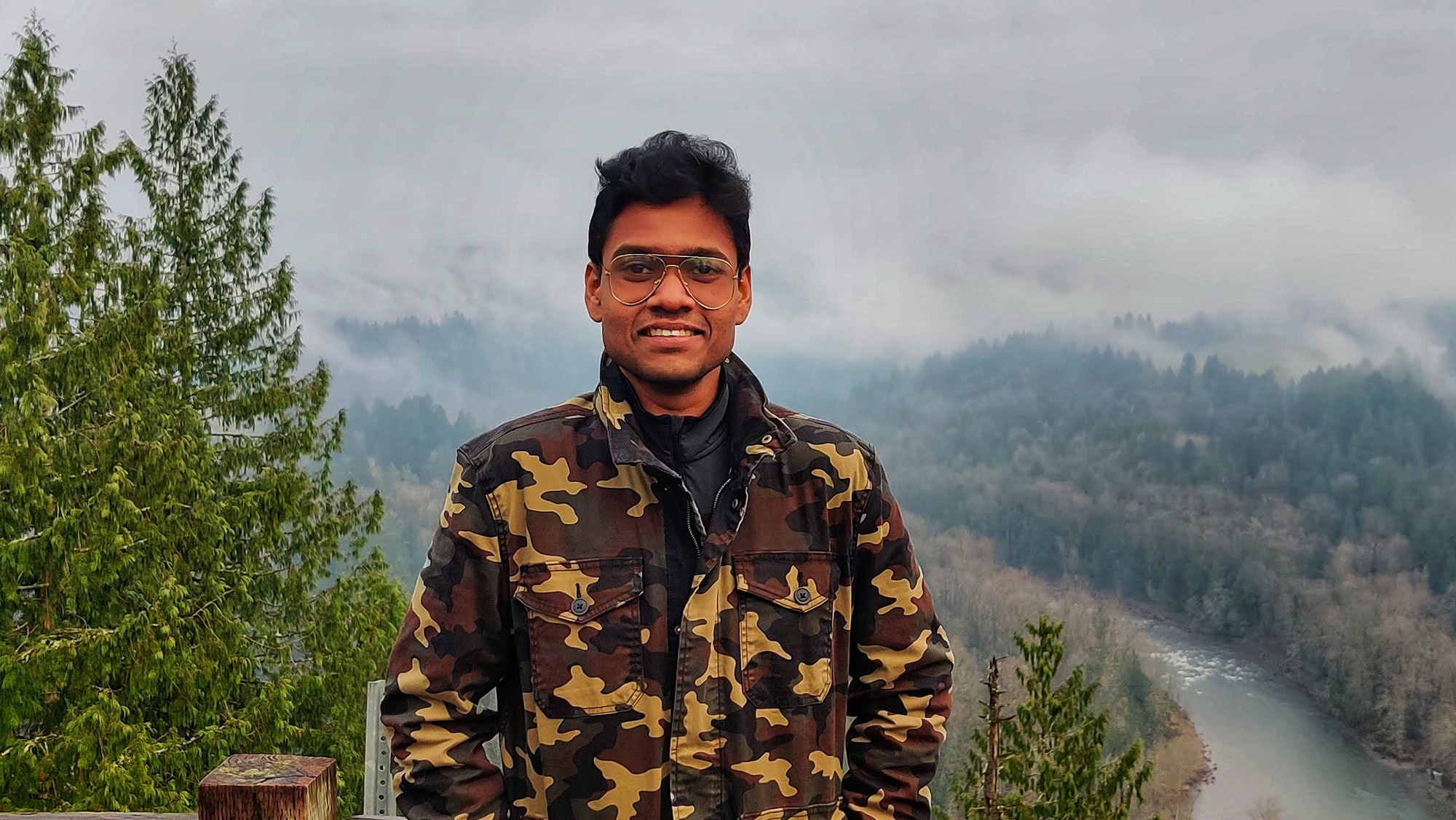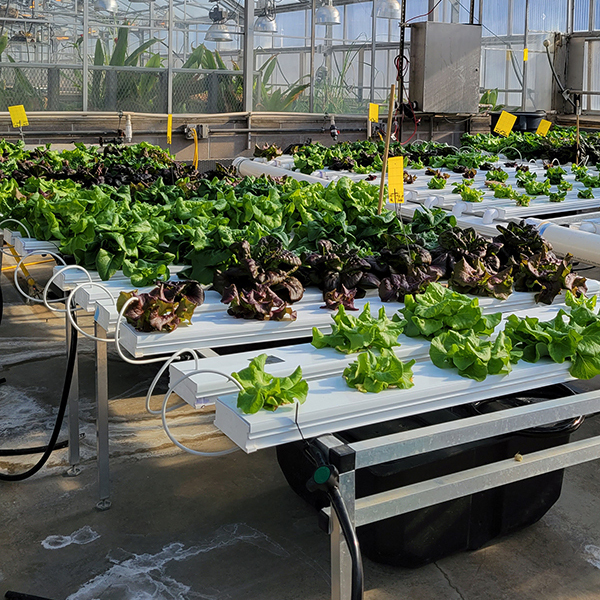
Inspired by growing plants on Mars, Sambandh Dhal, a doctoral graduate student from the Department of Electrical and Computer Engineering, is applying artificial intelligence (AI) as a tool to regulate nutrients for growing plants in soilless mediums.
Dhal and his advisor, Stavros Kalafatis, an electrical and computer engineering professor of practice, merged the idea of a “food computer” and a vegan diet to test if a person could live off plants solely grown in nutrient-rich water.
“It was definitely a very challenging and exciting experience,” Dhal said.
Though they successfully collaborated with hydroponic farms in College Station, Bryan, Caldwell and Iola, Texas, to grow kale, lettuce and spinach, the team needed to grow a major source of protein.
As a result, Dhal worked closely to grow soybeans in hydroponics with the Post-Harvest Engineering Research Lab Services at Texas A&M University, supervised by Dr. Janie McClurkin Moore, an assistant professor in the Department of Biological and Agricultural Engineering, and graduate student Shikhadri Mahanta.

“I took the data we got from the lab and applied AI-based tools to regulate nutrients and measure the growth parameters in soybeans,” Dhal said. “Eventually, with this collaboration, we were able to grow green vegetables and soybeans in soilless mediums, which was one of the primary objectives of my research.”
In the future, Dhal would like to grow soybeans in commercial setups to see how the plants bear fruit since the team only grew soybeans through the flowering stage and in a controlled lab space.
Dhal received the 2024 Association of Former Students Distinguished Graduate Excellence in Research Doctoral Award for his work.
“I’m incredibly honored to be chosen for this award,” Dhal said.
After graduating, Dhal plans to join the Idaho National Laboratory (INL).
“At INL, we'll be applying different AI-based tools and techniques for discovering rare earth elements in e-waste,” Dhal said.